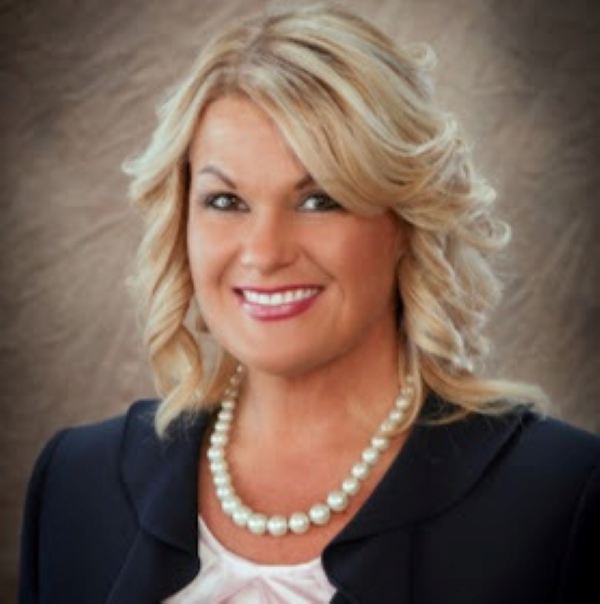Shelley Price-Williams

Shelley Price-Williams
How many years have you been working at UNI?
One
Briefly describe your educational background.
PhD in Higher Education Administration from Saint Louis University (2015) and completed an MS in Counseling and a BA in Sociology from the University of Memphis
Briefly describe your career background.
I hold two decades of experience in student and academic affairs spanning program development and management as well as academic advising, career counseling, and assessment. I moved into faculty full-time in 2019.
Why did you choose this career path?
I dreamed of this teaching role in preparing future practitioners for practice and fostering the growth of future leaders in higher education. In some small way, I hope to be influential in this field and improve our work with each college student through what is taught and learned in the classroom.
What brought you to UNI?
In my search for an academic home, I received an invitation to visit UNI. Upon this visit, I was met with a welcoming academic community. The position entailed key tenets for which I searched. I also found the Cedar Valley area appealing. It was an easy decision.
What's your favorite part about UNI?
Covid restrictions limited my ability to get to know the campus last year. I am looking forward to football and men's and women's basketball games, theatrical productions, and more this year. Thus far, my favorite physical part is the campus between Schindler and the library. Something about that path makes me think about the future and unlimited possibilities.
What is your greatest professional accomplishment?
I was elated to receive the 2021 COE Faculty Summer Scholarship in support of my research.
Recently, I joined a colleague as a senior editor of a book series titled Identity and Practice in Higher Education Student Affairs, a book series that seeks to interrogate the role of higher education and student affairs administration in shaping college student identity, engagement, and student success.
If involved in research, what is your area(s) of interest, and what drove your interest in this area?
My research interests center on non-cognitive factors of college student development and persistence, the inclusion of non-dominant groups in the college environment, and multicultural organizational development. These interests are fueled by my own challenging experience as a first-generation college student.
I am particularly interested in the experiences of underrepresented identities (whether that be students, faculty, or staff, in the college environment) and the interplay of those identities within the college environment and organization of higher education. I am currently working on a research project centered on the organizational justice experiences of underrepresented faculty.
The following are upcoming publications I contributed to that center on mental health support for athletes, sense of belonging among low-SES students, and academic recovery and retention programs.
McCarthy, B., Sasso P. A., & Price-Williams, S. R. (2022). In my feelings: Division I student-athletes navigating mental health and support services at a Midwestern university. College Student Affairs Journal.
Sasso P. A., Price-Williams, S. R., Shemwell, T. L. (2021). An individual responsibility: A qualitative exploration of facilitating undergraduate academic recovery programs. The Mentor.
French, A. E & Price-Williams, S. R. (In press, 2021). Economic stratification in higher education: An asset-based approach to low-SES students’ sense of belonging. In The impact of sense of belonging in college. Stylus Publishing.
What does being student-focused mean to you?
Many are familiar with the saying "meet the student where they are at," but this work requires more of us. Transformative leadership principles influence the way I think about a focus on the student. We must be focused on the position of the student when our lives intersect and aware of where they want to go. We must know their needs, abilities, and goals to mentor, motivate, and help students transform their lives.
We talk about helping students realize or even exceed their expectations and potential. What does it mean to you to be part of that process and see the outcome?
This transformation is one of the most beautiful moments in this work. Often it is latent or never realized. We may not witness this outcome, and our work should not change because of this. I often tell future practitioners in student affairs: "you will serve hundreds of students, but they will only have one of you." Always remember how significant you are in their lives. I am humble in this role and honored to support the growth of others on their journey through life.
What do you hope students learn from you?
I have an immense passion for higher education and provide many examples in class from practice. I hope students remember my advice to stretch themselves. I encourage them to stretch beyond their own experiences and to expand their cultural competency to be effective in supporting diverse student populations.
What advice do you have for prospective/current students to make the most of their time at UNI?
To both Master's and Doctoral level students, I advise you to be receptive to feedback and give yourself space to grow. Most students feel immense pressure with the status of a graduate student as if they should enter with a set of established knowledge. We must foster a sense of belonging in graduate students, especially those who are underrepresented. We can foster this through mentorship, support, encouragement, and providing a safe scholarly space for growth.
